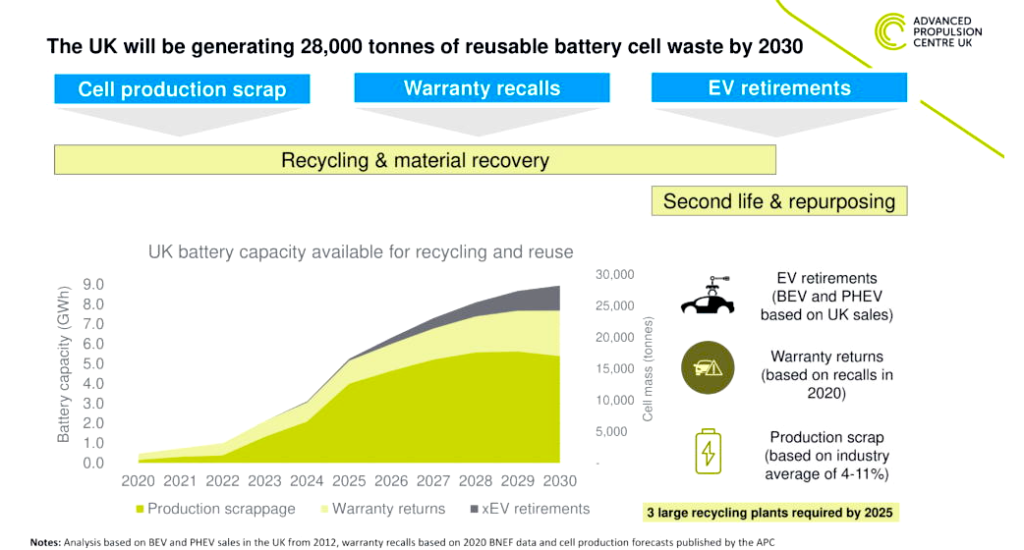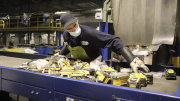Miner and commodities trader Glencore (LSE: GLEN) has tied up with electric vehicle (EV) battery start-up Britishvolt to build a new plant to recycle lithium-ion batteries in the United Kingdom.
The facility will help reuse expensive key raw materials like cobalt and lithium, the companies said today.
The plant will be built at the site of a Glencore operation in Northfleet, east of London, and is set to launch in 2023, with the long-term aim of being 100% powered by renewable energy.
The deal is the third major step the Swiss mining giant has taken in the past weeks towards tapping into the recycling sector. In late January, it partnered up with Moroccan mining company Managem to produce cobalt from recycled battery materials at a plant near Marrakech.
On Feb. 2, it announced it would expand its Britannia Refined Metals plant in southern England, which has historically been a leading re-user of lead-acid batteries found in combustion-powered cars.

Glencore and Britishvolt already have been working together. They inked a long-term cobalt supply deal last year and the mining giant owns an undisclosed stake in the start-up.
Their new project will be Glencore and Britishvolt’s first battery recycling facility in the U.K. It will have the capacity to take in at least 10,000 tonnes (10 million kg) of lithium-ion batteries a year, including manufacturing scrap from Britishvolt.
“By partnering with Glencore, we are locking in supply and de-risking the project,” Orral Nadjari, Britishvolt’s founder and chief executive officer, said in the statement. “This is a huge step in the right direction for Britishvolt as we look to accelerate the transition to a low carbon society.”
“This recycling partnership complements our long-term supply agreement for responsible cobalt from our operations in Norway and the Democratic Republic of Congo,” David Brocas, head cobalt trader at Glencore noted.
Britishvolt kicked off work on the 2.6 billion-pound (US$3.5 billion) battery plant in 2021, and last month the U.K. government backed the project with an unspecified amount from its Automotive Transformation Fund.
The entity counts with 1 billion pounds (US$1.36 billion ) to help build factories that can produce batteries at scale. Glencore took an undisclosed stake in the company and agreed to supply it with primary cobalt last year.
Recycling scrap from U.K. gigafactories could generate up to 20,000 tonnes of cathode active materials, or CAMs, to be reused, which is enough to make 7 GWh of new batteries, equivalent to 100,000 EVs, the Advanced Propulsion Centre’s Technology Trends team said in a report published on Feb. 3.
The team estimated that 28,000 tonnes of reusable battery waste would be created in the U.K. when including end-of-life vehicle retirements and potential warranty recalls.
The report forecast that recycled battery waste from end-of-life vehicles could supply enough CAMs by 2040 to produce 60 GWh of new batteries.
Global vehicle makers are preparing to launch hundreds of new electric car models over the next few years, responding to pressure from regulators who continue to tighten restrictions on greenhouse gas emissions from vehicles.
The European auto industry, in particular, is rushing to meet tighter carbon-dioxide emissions targets that take effect next year or face billions of dollars in fines if they exceed them.
Recycling batteries will also reduce the amount of cobalt or lithium the U.K. needs to import to make EVs.





Be the first to comment on "Glencore, Britishvolt to jointly build battery recycling plant"